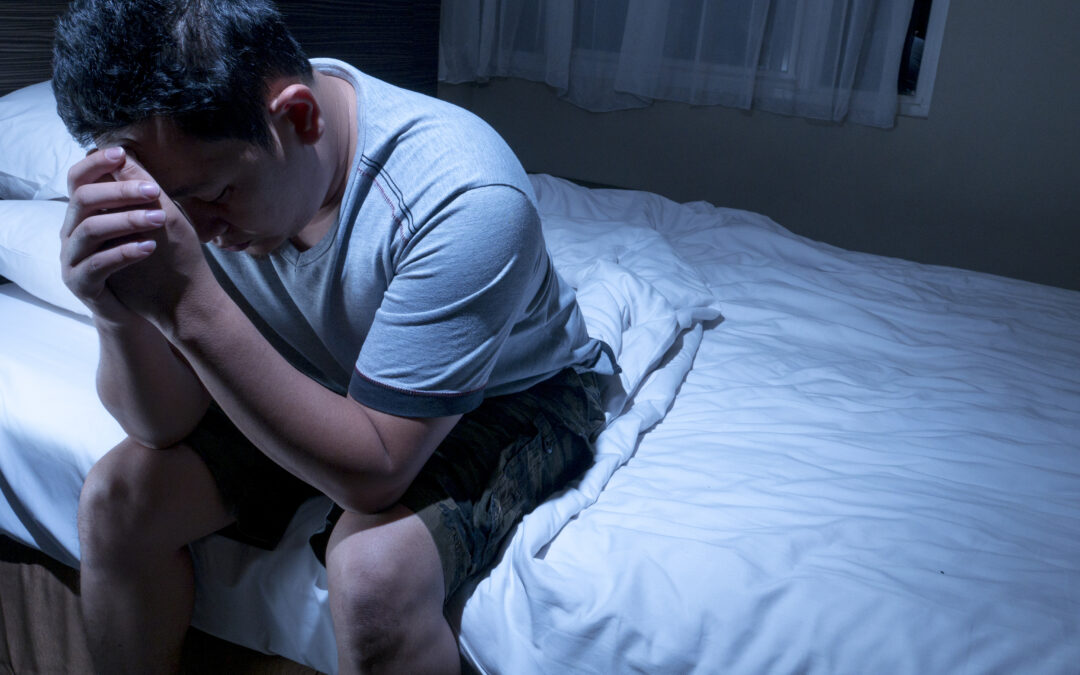PTSD and Sleep
Post-traumatic stress disorder (PTSD) is a cluster of symptoms that occur following exposure to a shocking or dangerous event. This can be anything from wartime trauma and natural disasters to accidents or violent experiences. Research states that 70 percent of adults experience at least one traumatic event in their lifetime, 20 percent of people who experience a traumatic event will develop PTSD, about 8 million people have PTSD in a given year, and 1 in 13 people will develop PTSD at some point in their life
PTSD Sleep Problems
Many people diagnosed with PTSD often experience challenges falling or staying asleep. In fact, studies have shown that when it comes to PTSD, trouble sleeping is one of the primary issues among patients. Bedtime is one of the most commonly reported times for hyperarousal symptoms to arise, meaning as a person is lying in bed attempting to get some shut-eye, the body suddenly kicks into high alert or fight or flight mode as a result of thinking about their trauma. Many of those struggling with the disorder opt to sleep separately from their partners for fear of acting out or physically reacting to their nightmares mid-sleep.
Other PTSD sleep problems include:
- Frequent waking throughout the night
- Trouble falling back asleep once awake
- Waking up earlier than intended
- Feeling restless following consecutive sleepless nights
- Mild psychosis following lack of sleep
- Nightmares/night terrors
- Racing nighttime thoughts
- Extreme worry/fear of falling asleep
- Obstructive sleep apnea (OSA)
Obstructive Sleep Apnea, PTSD, and Sleep
It’s not entirely understood why the prevalence of Obstructive Sleep Apnea (OSA) is higher in people with PTSD, but researchers speculate that it may have to do with underlying factors like chronic arousal, alcohol abuse, smoking, high blood pressure, diabetes or other physical health problems, or issues with weight gain.
Fortunately, CPAP therapy has proven to work well for treating patients with PTSD and sleep apnea and may even help to reduce nightmares. However, depending on the patient’s specific trauma, some devices may trigger negative memories or claustrophobia. In this case, it’s best to consult a sleep specialist about alternative treatment options.
Sleep Hygiene for PTSD: Tips for Sleeping Better
- Keep a cool, quiet, and peaceful sleep environment
- Maintain lighting that makes you feel most comfortable (dark, dim, light, etc.)
- Select the room that makes you feel safest and reserve that for sleeping only
- Try to maintain a regular bedtime schedule
- Eat a healthy diet and avoid any stimulants before bed
- Get regular exercise as this helps tame hyperarousal
- Avoid any stressors before bedtime, including discussing your trauma
- Do something calming before bedtime (warm bath, read a book)
- Turn off screens at least an hour before bedtime
- Consider using a white noise machine if sensitive to sounds
- Try out meditation or other mindfulness techniques
- If not asleep after 20 mins in bed, get up, do something relaxing, come back and try again
The best approach to overcoming PTSD sleep problems is by consulting both your primary care physician and a sleep specialist. Here at Valley Sleep Center, our expert doctors will perform an evaluation and determine the best treatment for your specific needs.


